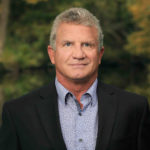The coronavirus outbreak has sent most grocery stores into a spiral as they try to keep up with the rapidly evolving demand.
During this crisis, one supermarket has lived up to its own high expectations: Texas’s own H-E-B.
This organization stayed true to one of the most fundamental crisis preparedness strategies by maintaining constant vigilance and beginning preparations in advance of the crisis even occurring. Their emergency response team began refining plans as early as January when they reached out to Chinese and Italian retailers to understand what pitfalls they were encountering in order to better navigate and avoid potential issues going forward. They learned what products to stock more of as the pandemic’s curve progressed, and how they could better support their staff during this time.
This proactive mindset laid the groundwork for a so-far strong response to this crisis.
Since March, H-E-B has stepped up and delivered…
- Extended fully paid medical leave to anyone diagnosed with coronavirus
- $2/hour pay increase through April 12
- Low-cost delivery services to seniors
- Limited store hours for restocking
- Put early purchasing limits on essential items to avoid the panic seen at some other stores
- Plexiglass shields to protect cashiers
Not going unnoticed, H-E-B has been praised across the state and country, even gaining the attention of some notable individuals like Arnold Schwarzenegger. These steps don’t come as a surprise to many, as H-E-B has been highlighted before as an excellent case study for crisis preparedness. During Hurricane Harvey, they took measures to transform their delivery network and prioritized storm-friendly items while scaling back non-essentials. The plan was largely successful and the grocery store was able to reopen 79 of its 83 affected stores just 5 days after the hurricane hit.
Another crucial implementation that company leaders have made is activating their Emergency Operations Center at the beginning of March to track the most impacted areas of the company during the pandemic. Justen Noakes, Director of Emergency Preparedness at H-E-B, has placed extra importance on their EOC because of the unknown nature of this particular crisis. A critical part of the EOC is that it enables key executives to be brought together in San Antonio to collaborate and streamline decision-making, ensuring leadership is as up-to-date as possible. With affected areas being just about every area of the company, the EOC has been very busy.
The weight of offering an essential public service is not lost on the leaders of this company, and it is apparent that they have taken the steps necessary to ensure they are as prepared as they can possibly be for the unknown. Their unified response has been uplifting and reassuring for the communities they serve and has been a fantastic benchmark for other essential businesses to look to for direction.
—
Update 4/9/20
H-E-B can’t seem to stay out of the headlines whether it would like to or not. As of this Sunday (April 3), employees at three Austin-area locations have tested positive for COVID-19. The day before, the grocery chain announced that it would be supplying its staff with gloves and facemasks on top of the measures it is taking listed above to prevent further spread of the virus.
In a move that we would have encouraged, they have set themselves up to be the source of all further information by making it known that all cases of employees testing positive for COVID-19 will be made public through local store websites, rather than releasing those figures to local news. By doing this, they are able to control the messaging and fill a potential vacuum of information. This will mitigate misinformation, and makes clear where customers can receive the most up-to-date accurate advice before shopping.
H-E-B has also announced that it will be donating $3 million to support local organizations during the outbreak. Here is how it breaks down:
-
- $1.2 million – H-E-B’s Hunger Relief Program will be supporting 18 food banks throughout Texas.
- $500,000 – to organizations dedicated to services for seniors and low-income households
- $300,000 – donated to the Texas Biomedical Research Institute for coronavirus research
- $1 million – donated to H-E-B’s various nonprofit partners
Even since the original release of this article, it is obvious that H-E-B’s job is not finished. They continue to face hurdles and challenges that they have so far responded accordingly. As the crisis continues, time will tell if their actions will continue to meet the high expectations they have set.
—
Update 3/10/21
Last week, when Texas Gov. Greg Abbott declared that he would be ending all COVID-19 restrictions including the mask mandate, H-E-B’s communications team was once again put to the test.
In an attempt to protect its own employees, H-E-B began responding to inquiries on social media around company-enacted mask mandates by saying that it would be urging but not requiring that customers wear masks. H-E-B’s social media handles were flooded with negative comments shortly after, accusing H-E-B of endangering staff and customers. The grocer was forced to react quickly and formally reiterate its mask policy in a news release that addressed the mandates ending on March 10th.
In addition to this news release, H-E-B President Scott McClelland sat down with Chron.com, the news site that originally reported that H-E-B wouldn’t be mandating masks for shoppers, in order to further clarify the business’s requirements. McClelland revealed that over 2,000 in-store incidents surrounding masks had occurred at Houston stores alone, suggesting that not requiring masks is a step that H-E-B is taking in order to keep its staff safe. McClelland then went on to cite the CDC’s recommendations around mask-wearing and called wearing a mask the “kind, considerate and empathetic thing to do.”
Faced with a crisis that stemmed primarily from misunderstanding, H-E-B made several decisions that allowed them to quickly turn negative coverage into positive reinforcement of their existing policies:
-
- Even though communications still existed around their policies, they created a new press release to clarify misunderstandings and mitigate speculation.
- The spokesperson worked with the outlet that received the most local attention and cited specific examples for why the policy is enforced a certain way.
- H-E-B Corporate responded quickly and uniformly to speculation on social media, quelling any additional spread of misinformation.

